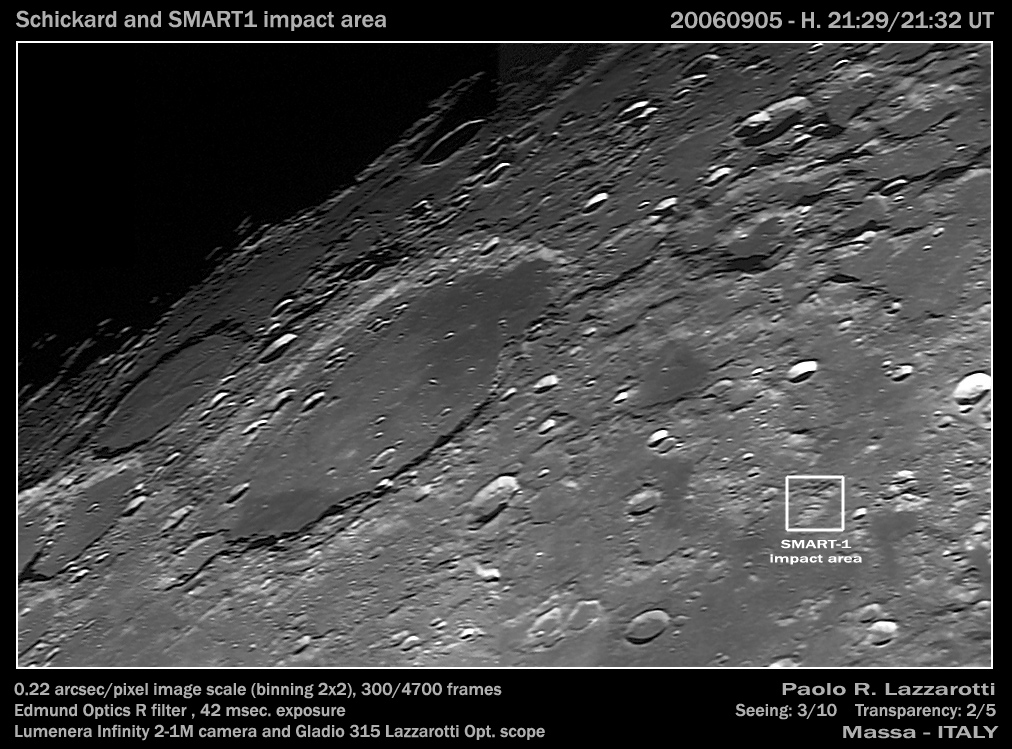
image by ["mailto:paolo@lazzarotti-optics.com Paolo R. Lazzarotti ]
Under bad seeing conditions Paolo tried to image the SMART-1 crash site. With the poor seeing he couldn’t achieve the large image scale and sub-kilometer resolution that he often has. So this is a record of an attempt;p there will be more by Paolo and others. But it is highly unlikely, based on current understanding of how the surface may have been changed by the impact, that anyone will detect any change. The ESA ["http://www.esa.int/SPECIALS/SMART-1/SEMWSW5LARE_0.html website] suggests that SMART-1 made a very oblique smash into the Moon at the very low (cosmically) speed of 70 km/hr. This is not a hypervelocity impact so the estimated 3-10 m wide crater should be more like a gouge. This is far below any resolution achievable from the Earth. If you look at bright halos around fresh young impact craters you will see that the halos are only 3-5 times the diameter of the craters, so if this ratio holds true for the SMART crater it’s nimbus may be only 10-50 m wide - still way too small to be detected. Highly oblique impact craters have lateral ejecta that sometimes goes 5-10 times the crater diameter, but for SMART this is still only about 100 m. But we really don’t know what the impact might have done so the landing area should be closely observed, probably under a high Sun to detect the larger bright nimbus. Perhaps someone can convince the European Southern Observatory to search with its 353″ telescope with ["http://www.lpod.org/archive/archive/2004/03/LPOD-2004-03-10.htm 130 m] resolution! ESA ought to want its telescope to look for the remains of its probe. Better yet would be to use Hubble that has resoloved lunar features less than ["http://hubblesite.org/newscenter/newsdesk/archive/releases/1999/14/image/c 100 m] wide.
Technical Details:
5 Sept 2006, Gladio 315 Lazzarotti telescope (f/25), Lumenera Infinity 2-1M camera, Edmund Optics R filter IR blocked, 300 frames stack out of 4700.
Related Links:
Rükl plate 62
["http://www.lazzarotti-optics.com/ Paolo’s website]
You can support LPOD when you buy ANY book from Amazon thru ["http://www.lpod.org/?page_id=102 LPOD!]
COMMENTS?
Click on this icon File:PostIcon.jpg at the upper right to post a comment.



